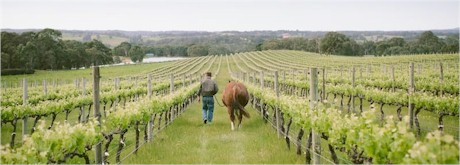
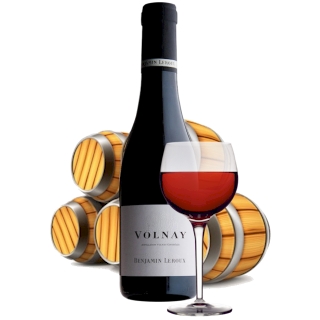
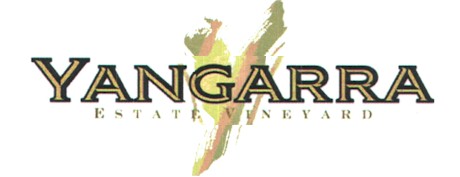
The story begins in 1862, when Ebenezer Ward was the most colourful wine critic of his day, he described the grounds of Yangarra as a gigantic pyramid of verdure, its slopes and summit clothed with luxuriant vines. After a century of viticulture, the site was re developed in 1946 by one of McLaren Vale's most distinguished vignerons. Bernard Smart’s name remains synonymous with many of the old vine plantings which dot the Blewitt Springs Clarendon districts and produce the region's most compelling Grenache wines. For many years, the fruit of the 1946 Yangarra plantings was sought by winemakers who used it as an important component of their icon wines.
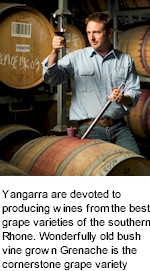
In the year 2000, California pioneers Jess and Barbara Jackson began their search in Australia for a site that could produce world class wines. Their endeavor culminated a year later when they discovered the estate and fell in awe of the gnarly, old bush vines that deliver the heart and soul of Yangarra. The property is 170 total hectares, of which nearly 90 hectares are planted to vine. The remaining 80 hectares are preserved for native vegetation and wildlife and is intended to enhance the symbiotic relationship between the vines and their natural environment. Yangarra’s combination of rare geologies, moderate altitude, abundant sunshine and cool evening breezes make it perfect for growing varieties that thrive in the moderate maritime Mediterranean environments.
Yangarra are devoted to producing wines from the best grape varieties of the southern Rhone. Old bush vine Grenache is the cornerstone grape variety. Yangarra Estate is further planted with a diverse number of varietals, including traditionals like Shiraz and Roussanne to more obscure varieties such as Bourboulenc and Picpoul Noir, Clairette Blanc and Counoise.
With a tendency towards experimentation, Yangarra was the first in Australia to commercially plant Grenache Blanc. The uncompromising attention to detail in the vineyard follows through to the winery. A sensitive and gentle hand in the winemaking, constant observation and knowing when not to interfere are key pillars aimed solely at preserving the natural characters that originate from a distinctive vineyard.
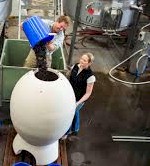
The dedicated team Yangarra draw inspiration upon the tried and tested techniques of old, such as wild fermentation, basket pressing, amphoras, ceramic eggs and large format oak foudre. They aim to make a classic and timeless style of wine, remaining true to varietal character and recognizable to admirers of other global benchmarks. Applying biodynamic preparations promote beneficial soil microbial biomass, natural composting processes through mulching grasses under vine back into the soil, building organic matter. Grazing sheep through winter helps to control grasses throughout the vineyard, naturally fertilising soils and reducing compaction from tractors. Yangarra Estate and its wines have steadily gained respect and acclaim within Australia and beyond our shores. Though maintaining a progressive trajectory towards the future, Yangarra continues to take inspiration from its earlier days, grateful for visionaries like Smart and Jackson who endowed custodianship of this prized land and history.
Through strict biodynamic regenerative farming practices and sensitive winemaking philosophies, Yangarra's respect of this special piece of country is evident in the wines. Every Yangarra Estate wine is a confident reflection of this great and fortunate land.
